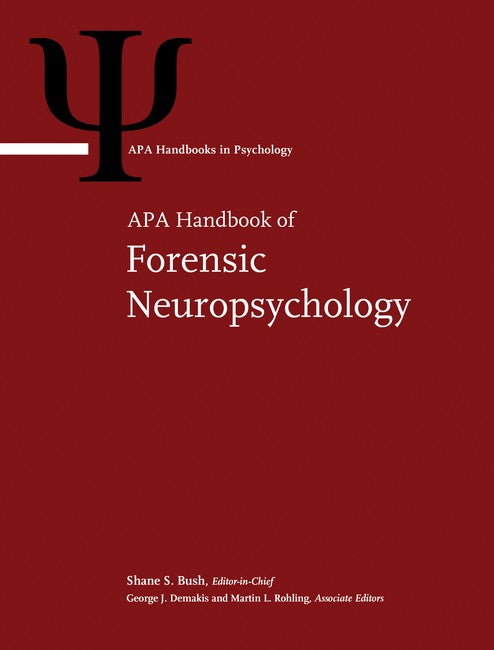Description
Editorial Board About the Editor-in-Chief Contributors Series Preface Foreword Introduction I. Theoretical, Statistical, and Ethical Foundations 1. Fundamental Forensic Statistics: Statistics Every Forensic Neuropsychologist Must Know 2. Ethical Practice in Forensic Neuropsychology II. Assessment Measures and Procedures 3. Beyond the Tests: Record Review, Interview, and Observations in Forensic Neuropsychology 4. Selection of Tests and Batteries for Forensic Neuropsychological Evaluations 5. Symptom and Performance Validity Assessment in Forensic Neuropsychology 6. Neuroimaging Techniques in the Courtroom III. Disorders and Special Populations 7. Mild Traumatic Brain Injury 8. Moderate to Severe Traumatic Brain Injury 9. Assessment of Psychiatric Disorders in Forensic Neuropsychological Evaluations 10. Evolution, Forensic Implications, and Future of Somatic Symptom Disorders 11. Chronic Pain and Neuropsychological Assessment IV. Special Topics and Populations 12. The Veteran's Disability Examination: Considerations for Neuropsychologists 13. Neuropsychological Evaluations in Disability Determinations 14. Civil Capacities 15. Competency to Stand Trial and Criminal Responsibility in Forensic Neuropsychology Practice 16. Diversity Considerations in Forensic Neuropsychology V. Neuropsychology in the Courtroom 17. Forensic Neuropsychological Reports 18. Admissibility of Neuropsychological Evidence 19. Neuropsychological Testimony 20. Forensic Neuropsychology and the Legal Consumer VI. Future Directions 21. Technology and Computerized Assessments: Current State and Future Directions 22. Education and Training in Forensic Neuropsychology Index

